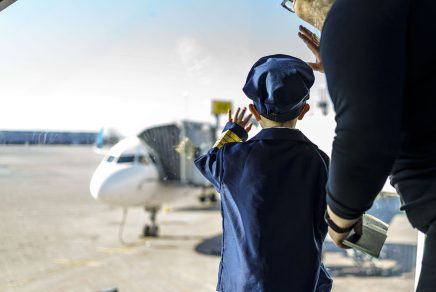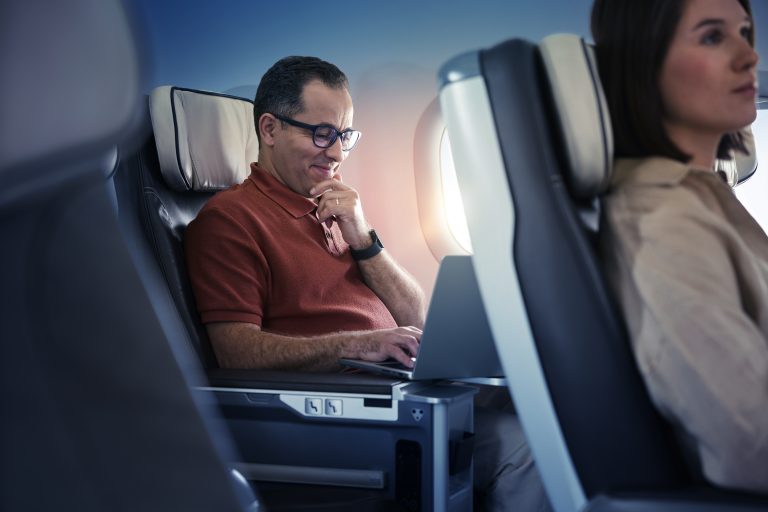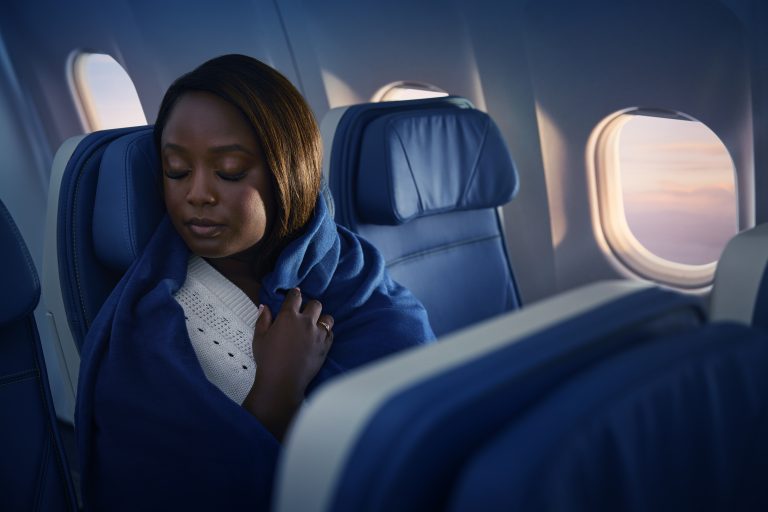As well as being an impressive feat of engineering, the aeroplane is statistically the safest form of transport in the world. It far outstrips other modes of travel in terms of safety! However, despite this impressive reliability, around 30% of passengers experience anxiety, sometimes intense, at the thought of flying. For 1 in 10 travellers, this phobia goes beyond mere discomfort and becomes a debilitating fear of flying, literally preventing them from boarding the plane.
This fear of flying can turn what should be an exciting adventure into a stressful, even debilitating experience. As a flight attendant with a few years’ experience, I regularly encounter struggling, nervous flyers for whom flying can be a traumatic experience.
Fortunately, there are many solutions to help you regain control, calm your mind and make the skies as welcoming as your holiday destination.
Aerophobia and aviophobia: How do you overcome fear of flying?
Before you can tackle a phobia, you first need to understand it. Psychologically, fear of flying can cause stress, anxiety or even panic attacks, which are similar to anxiety disorders. Physically, symptoms often include trembling, breathing difficulties, heart palpitations, excessive sweating, dizziness, and even nausea.
Identifying what triggers your fear of flying and distinguishing between the different elements that can exacerbate your anxiety will help you find solutions. And ultimately, allow you to plan that trip you’ve been looking forward to for so long.
- Are you afraid of flying because you are unfamiliar with aeroplanes and the general principles of aviation?
- Could it be that you feel uncomfortable in small spaces for long periods of time?
- Or do you suffer from motion sickness?
It may even be helpful to consult a doctor to explore the options available to you, depending on the severity of your condition.
Control your fear of flying by understanding turbulence
Let me reassure you straight away: turbulence is not dangerous. Turbulence is caused by windy corridors or the meeting of warm and cold air currents.
Pilots are trained to avoid them as much as possible. A detailed flight plan is given to them for each flight, outlining the route to take in order to avoid turbulence and other weather phenomena, minimising flight time and maximising fuel efficiency. It’s also important to know that the pilots are in constant contact with their colleagues from other airlines who are flying at the same time, so that they are aware of the latest weather forecasts. Weather radar also helps pilots to avoid turbulence with a high degree of precision.
Although they may seem unsettling, bad weather and rocky turbulences are not dangerous— neither to the aircraft itself nor to the people on board.
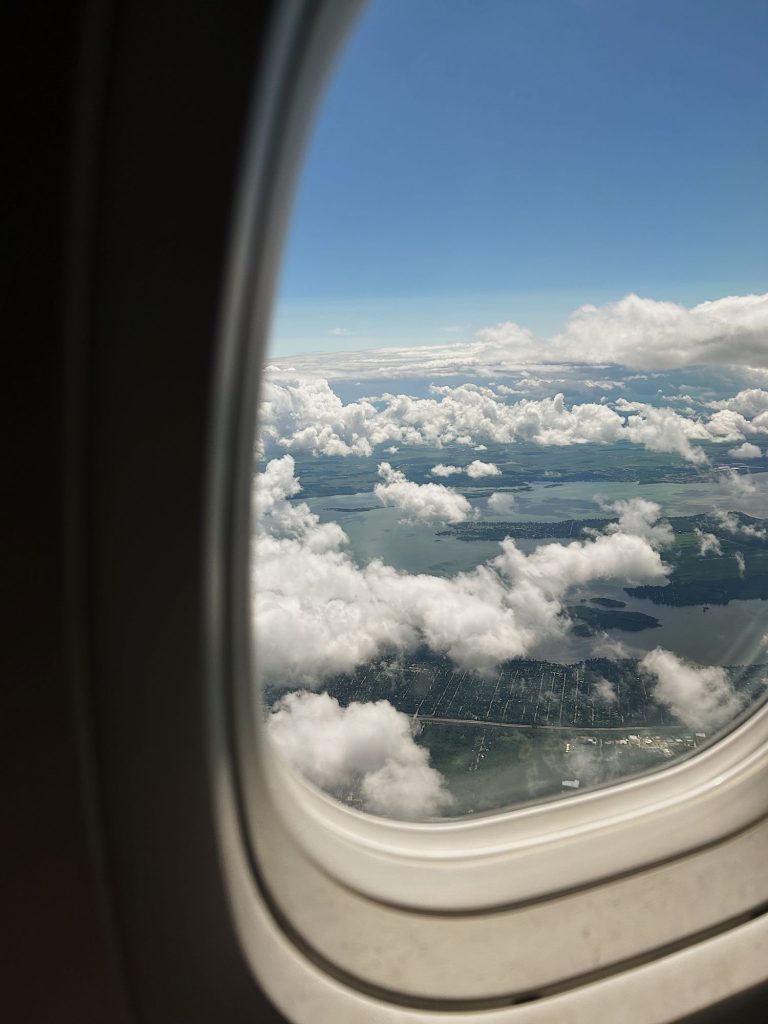
How to get over airplane fear: plan accordingly
Avoid long-haul flights and opt for direct flights
For your first flying experience, choose a destination that doesn’t require a long flight. For example, start with a three or four hour flight to the sunny Caribbean or Florida. You can then gradually increase your exposure and eventually travel to Greece or North Africa.
If you suffer from fear of flying, it would also be wise to avoid layovers as much as possible. Additional flight segments mean more take-offs and landings—which can cause even more anxiety. Not to mention the stress of moving from one terminal to another or possible flight delays…
Do everything in your power to simplify your itinerary as much as possible as this will have a direct impact on your aerophobia condition. Luckily, at Air Transat, we love direct flights!
Choose your seat in advance
If you’re worried about turbulence during your flight, it’s best to choose a seat in the middle of the cabin, near the wings. This is where the plane’s centre of gravity is located, making it the most stable place in the event of turbulence.
Demystify aviation to curb your fear of planes
Avoid the disaster scenario documentaries on certain TV channels. Instead, focus on informative videos about the science and technology of aviation—there are hundreds of them on YouTube. Some even cater specifically to nervous fliers to help combat fear of flying and aviophobia!
Learning how an airplane works, understanding aviation or reading testimonials can help rationalise and even trivialise the experience of flying.
Get to the airport early
I cannot emphasise enough how important it is to arrive at the airport early! This will allow you to go through the various steps of the airport process with peace of mind. You can then enjoy the facilities and arrive on time for boarding without any additional stress.
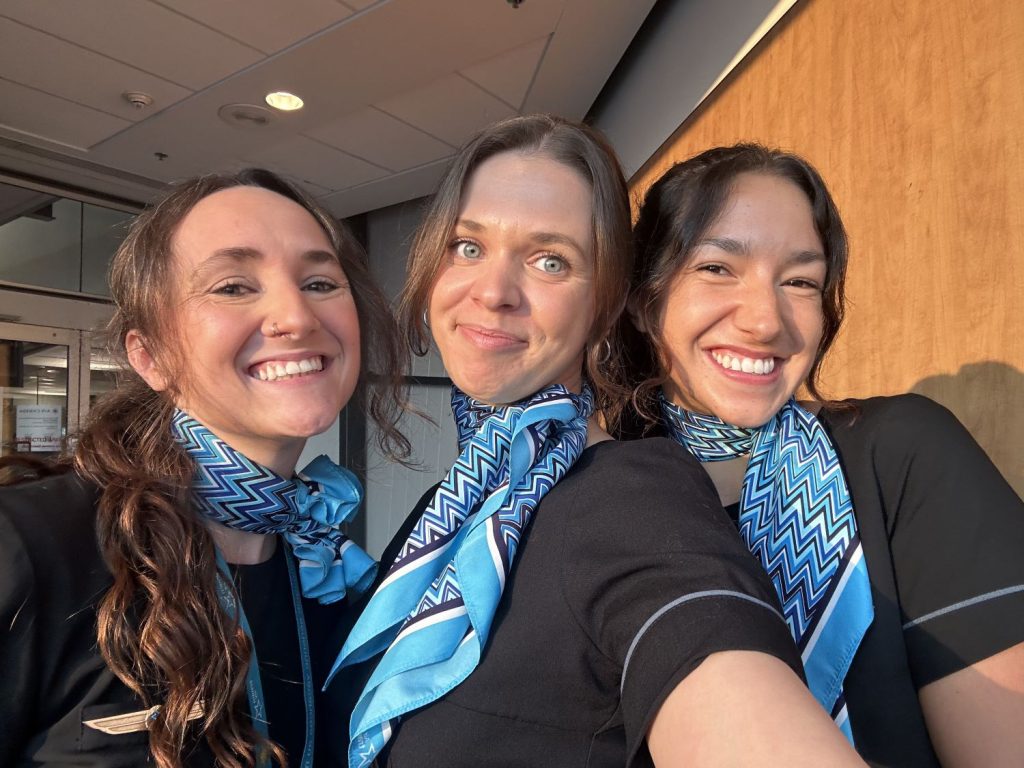
Relax and distract yourself to manage your flight anxiety during the flight
Share your extreme fear of air travel with the crew
This is the most important step of all. We will be your greatest allies in this important part of your journey! Never hesitate to voice your concerns and share your fear of flying before take off.
We’ll be happy to answer your questions, demystify specific triggers, give you aerophobia tips and keep a watchful eye on you during the various phases of the flight. We know our planes and we’ve been trained to help nervous fliers overcome their fears, whatever they may be.
We’re here to help!
Practice breathing exercises and meditation
If you’re feeling anxious at any time during the flight, start with deep abdominal breathing. Visualise your destination, focus on the purpose of your trip, what drives you to travel, and breathe deeply. Hand massages can also help release tension.
To further enhance your meditative state, Air Transat flights are equipped with meditative playlists powered by Stingray; they’re excellent companions to help you refocus in times of stress as you soar through the skies.
Keep your mind busy with distractions
Wear comfortable clothes, sit back and keep busy: distraction is a good way to channel anxiety and make time fly by. Play video games, watch a film, listen to soothing music, even draw or colour—anything that takes your mind off your fear of flying is good in my book!
Drink plenty of water—and nothing else
Because the air in an aircraft cabin is very dry, it’s important to drink water and stay hydrated. It’s also a good excuse to get up from time to time, go to the toilet and stretch – focus on something other than your fear for a few minutes.
In addition, passengers who are afraid of flying should avoid coffee and alcohol, as these drinks can increase anxiety. Save your first cocktail for the first night of your trip and celebrate your victory!
Keep your eyes on the prize
If the fear persists, try to focus your thoughts on the purpose of your journey rather than your fear. Block out the negative thoughts as much as possible. After all, you’re about to embark on the journey of a lifetime!
- Will you be reuniting with family members?
- Fulfilling one of your wildest dreams?
- Celebrating a special occasion?
- Marking an anniversary?
These precious moments abroad should serve as your beacon and motivation. And most importantly, they’re the moments you’ll remember the most.
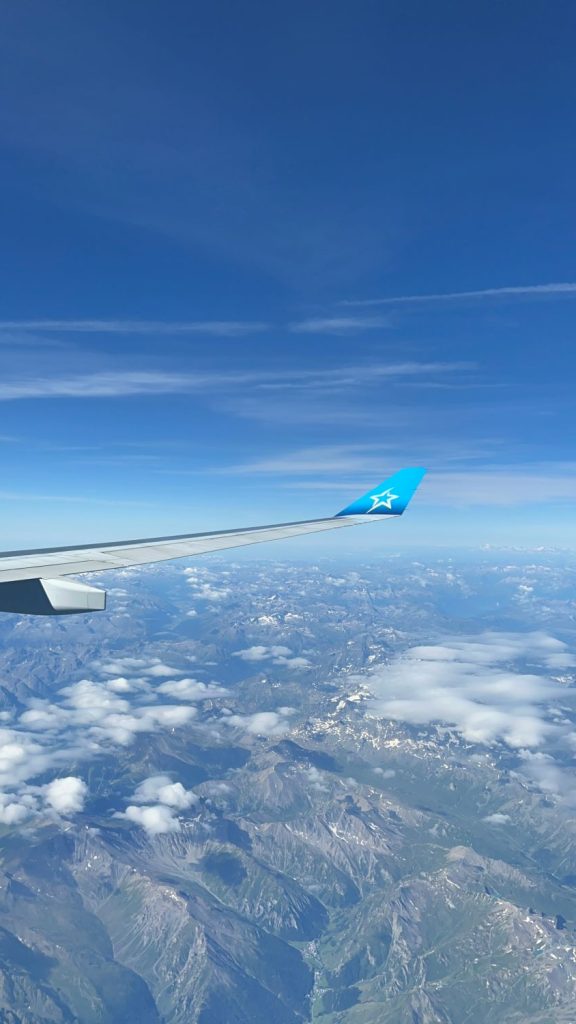
After the flight: Sign up for exposure therapy
Did you love your trip and wish you could go again? Do you still feel held back by your severe fear of flying?
There are courses and exposure therapy that can help you with this. Aviation therapy, for example, offers a theoretical part that focuses on your fears, and a second part dedicated to weather phenomena and how planes work. Some courses also include an in-flight experience in a simulator. It’s the perfect place to experience the different phases of a flight at your own pace, in a controlled and calm environment, with the help of specialists.
Finally, if your fear of flying is paralysing you and taking up all the space in your travel plans, talk to your doctor or health professional to find out more about the options available to you.


